
The market price of beef has gone up by as much as 150 Br a kilo in the past week due to a combination of factors including a shortage of oxen, issues with taxation, rising costs for fodder, and transportation challenges presented by instability and conflict across the country. Industry insiders say that prices will likely continue to spike as calls for government attention go unheeded.
A kilo of beef from a butchery in Addis Abeba now goes for anywhere between 250 Br and 600 Br, depending on the type of cut and the location of the butchery. Prior to the start of the Easter lent two months ago, prices were 100 Br to 150 Br lower on average. Meanwhile, the cost for a single ox has shown an increase of between 8,000 Br and 30,000 Br, depending on breed and age.
According to Fantalem Mohammed, a cattle trader in the capital, one of the reasons for the climbing prices is the growing popularity of the contraband cattle trade, where traders can earn more money by selling their livestock to buyers in neighbouring Kenya and Djibouti.
“They, in turn, sell to Middle Eastern countries,” said Fantalem.
According to the East African Crossborder Trade Bulletin, about 35,280 cattle have been sold by Ethiopian traders to their counterparts in Somalia in the first three months of 2021, exhibiting a six percent quarterly growth stemming from a surge in re-exporting of the same products by traders in Somalia to Middle Eastern countries.
"Contraband trade has been quite a common practice in border areas, though it may have contributed to the recent shortage of cattle," said Hadgu Hailekiros, director of the Ethiopian Meat and Dairy Industry Development Institute. "Since the contraband traders get paid in foreign currency, the higher premium rate has encouraged them to illegally export such items rather than supply to the local market."
Be that as it may, rising costs for fodder are another reason behind the surging prices of cattle. As recently as two months ago, one ox would typically consume up to 40 Br worth of feed a day but this has now more than tripled to 200 Br, while jute bags of fodder costs 3,000 Br apiece, exhibiting the same increase. With suppliers of fodder using the final product of wheat and processed soybean as raw material, the surge in price has resulted from a shortage of these inputs, according to Biazen Chane (PhD), technical manager of Agro-vet, an agricultural inputs supplier.
Political instability is playing its part in driving up prices too. Even if cattle traders and dealers are willing to shell out hundreds of thousands of Birr for a shipment of livestock, truck drivers are increasingly unwilling to provide transport due to safety concerns. Traders in the capital receive cattle from all parts of the country but mainly get their supply from Oromia, SNNP, and Amhara regional states. They claim that deliveries from the Amhara and Oromia regions, where most of the supply comes from, have been interrupted.
The daily withdrawal limit, put in place by the National Bank of Ethiopia in October 2020, has contributed to the price upsurge. The Ethiopian Livestock Traders Association has already written a letter to the central bank demanding the lifting of the limit on traders involved in the trading of cattle.
"A single trader usually buys 10 cattle from herders in a single trip, so this means they at least need half a million Birr to do so, while the maximum amount of cash they can hold is 75,000 Birr," said Moges Haile, president of the Association. "This has opened a window of opportunity for illegal suppliers to control the market, which is now turning informal."
Traders were disappointed to see a sharp drop in deliveries last week; possibly the biggest sales week of the year for them due to the millions of followers of the Ethiopian Orthodox Church celebrating the end of the two-month fasting period. In previous years, traders in the capital used to receive hundreds of truckfuls of cattle in the week, leading up to the Easter holiday but this time, less than a hundred were delivered, according to Fantalem.
“I fear that in the coming weeks, the price of a kilo of beef will get to 1,000 Br,” he said.
Even with the price hikes, butchers are selling at a loss, according to traders like Tesfaye Abate. Even doubling their prices would do little to help them.
"When prices increase due to unpredictable reasons, they will not go down when the problem vanishes," said Tesfaye.
According to the Addis Abeba Meat Dealers Association, there is also a big issue regarding unfair taxation. Ayele Sahile, general manager of the Association, explained that they have reached out to governmental organs including the Office of the Prime Minister, the Addis Abeba City Administration, the City Customs Commission, and the Trade Bureau but have yet to receive any response.
“There are butchers who are being taxed up to one million Birr annually,” said Ayele. “Many are closing down due to the shortage in addition to the unfair taxation.”
According to the manager, the butchers are currently operating at a loss.
“The price that we are selling at now can't even cover our expenses,” said Mitiku Moshago, deputy board chairperson of the Association and the general manager of a butchery that has 10 employees. “We're trying to keep our employees."
PUBLISHED ON
May 08,2021 [ VOL
22 , NO
1097]
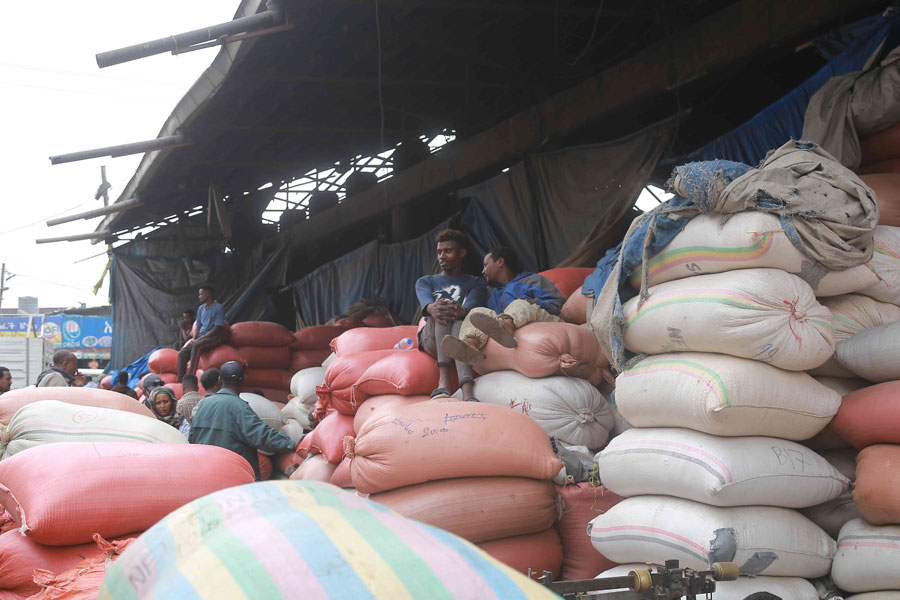
Agenda | Mar 04,2023

Viewpoints | Mar 28,2020
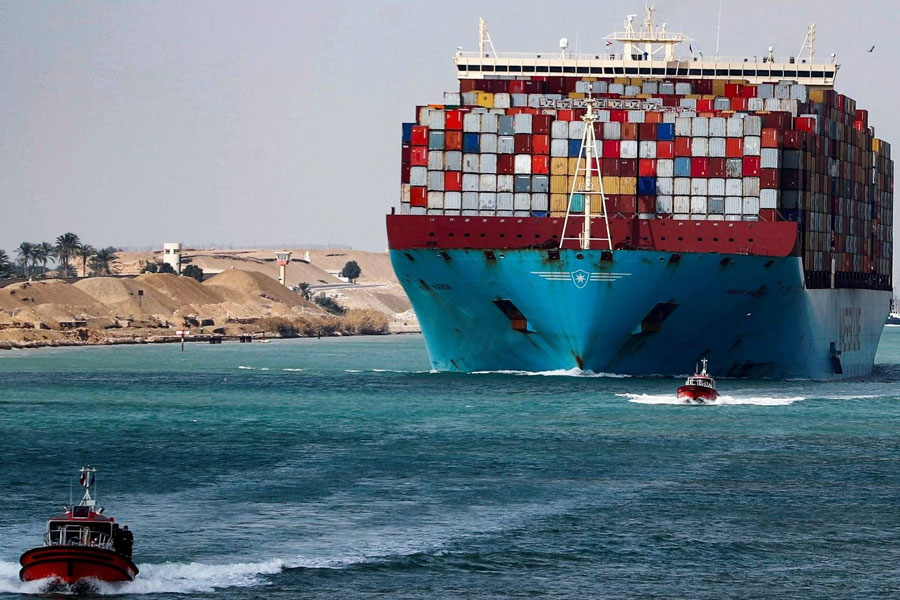
News Analysis | Mar 23,2024
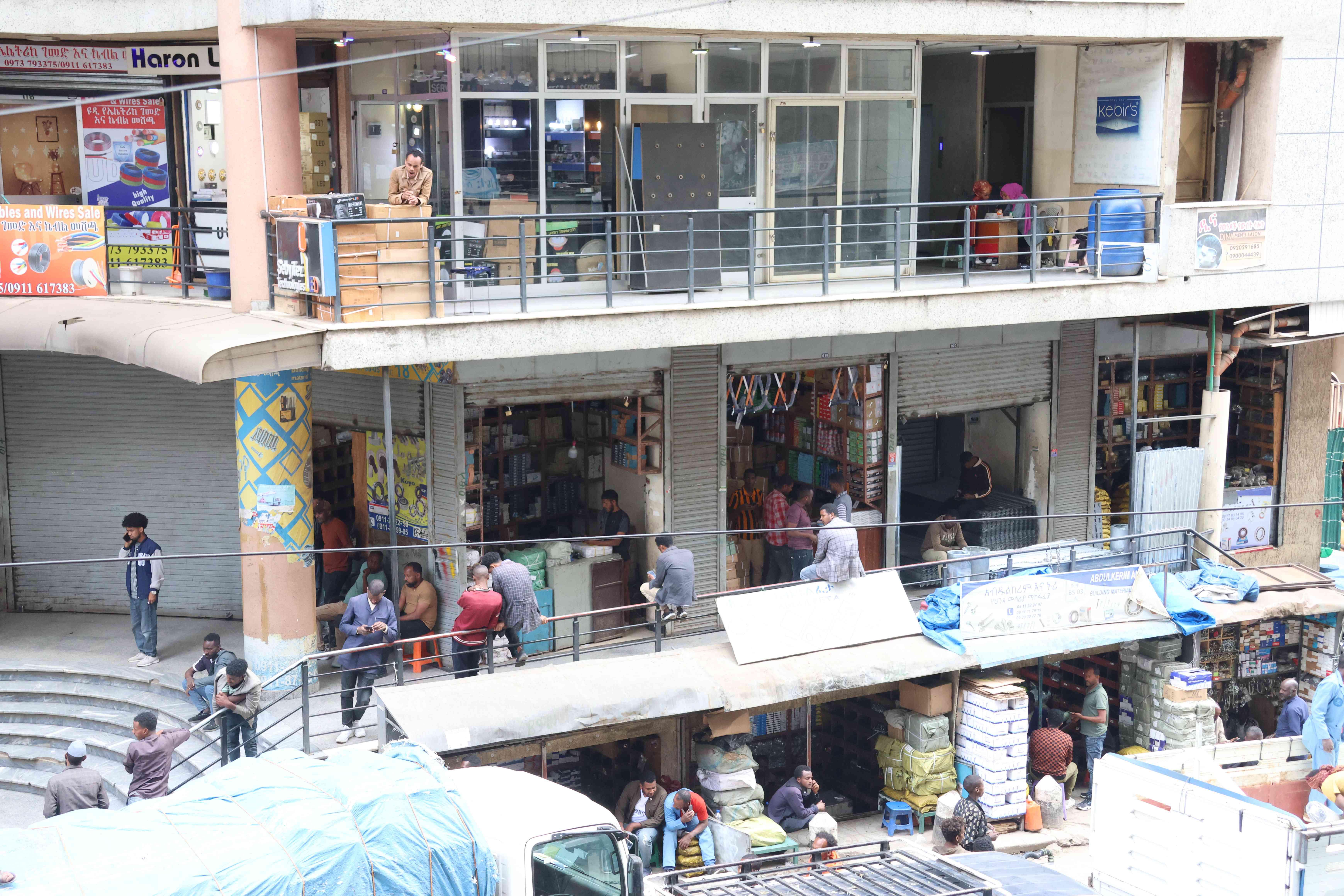
Agenda | Apr 13, 2025
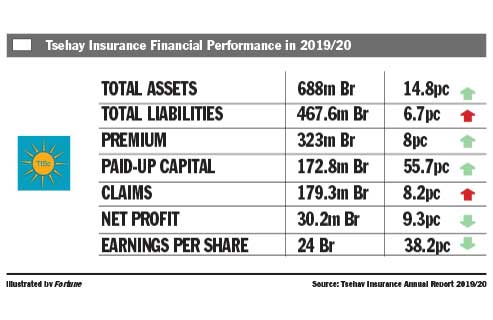
Fortune News | Feb 13,2021
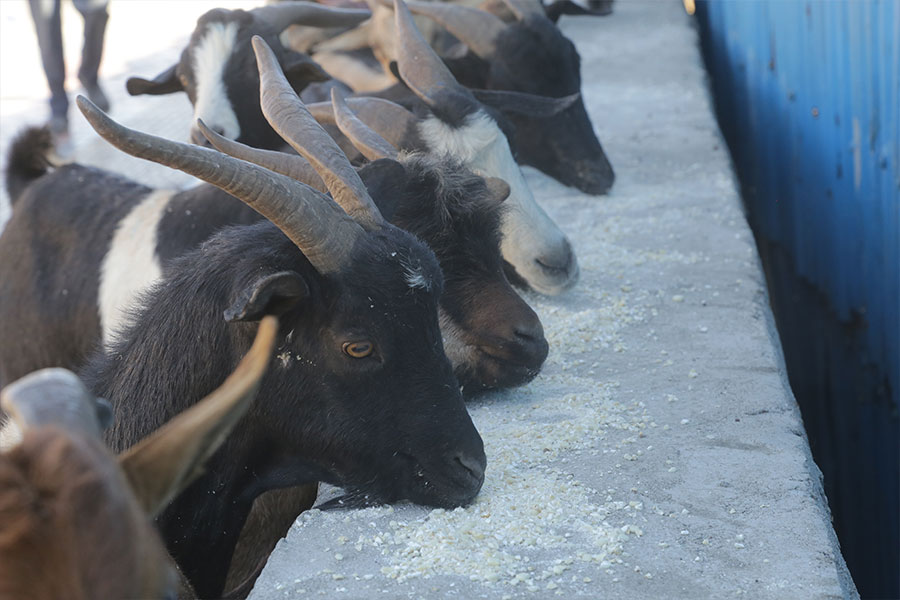
Radar | Jan 07,2023

Radar | Apr 02,2022

Editorial | Mar 16,2024

Sunday with Eden | Aug 03,2019

Radar | Jul 13,2024

Dec 22 , 2024 . By TIZITA SHEWAFERAW
Charged with transforming colossal state-owned enterprises into modern and competitiv...

Aug 18 , 2024 . By AKSAH ITALO
Although predictable Yonas Zerihun's job in the ride-hailing service is not immune to...

Jul 28 , 2024 . By TIZITA SHEWAFERAW
Unhabitual, perhaps too many, Samuel Gebreyohannes, 38, used to occasionally enjoy a couple of beers at breakfast. However, he recently swit...

Jul 13 , 2024 . By AKSAH ITALO
Investors who rely on tractors, trucks, and field vehicles for commuting, transporting commodities, and f...

Jun 28 , 2025
Meseret Damtie, the assertive auditor general, has never been shy about naming names...

Jun 21 , 2025
A well-worn adage says, “Budget is not destiny, but it is direction.” Examining t...

Jun 14 , 2025
Yet again, the Horn of Africa is bracing for trouble. A region already frayed by wars...

Jun 7 , 2025
Few promises shine brighter in Addis Abeba than the pledge of a roof for every family...